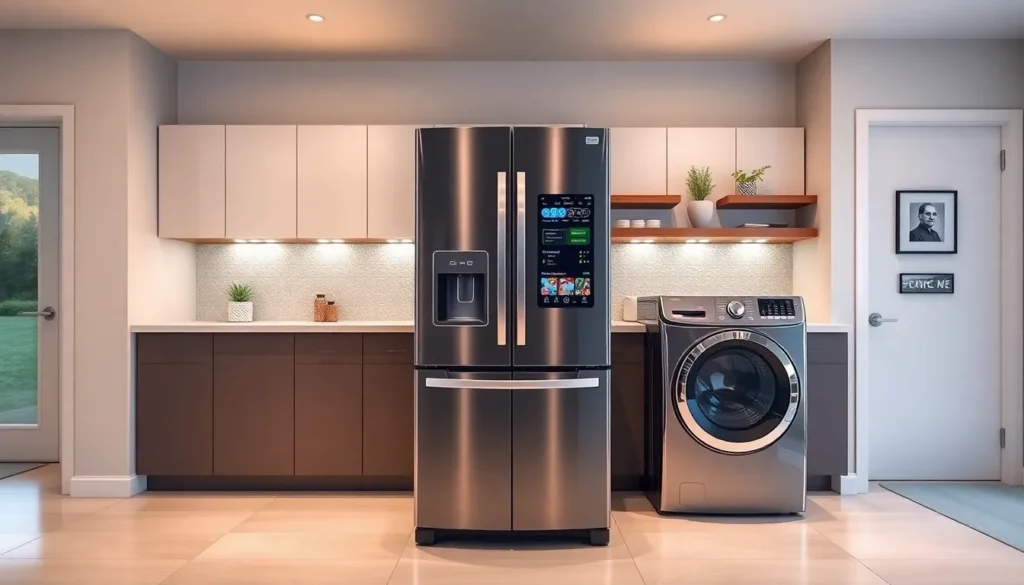Table of Contents
ToggleIn today’s fast-paced world, smart appliances are revolutionizing the way people manage their homes. These innovative devices seamlessly integrate technology into everyday tasks, making life easier and more efficient. From refrigerators that track inventory to washing machines that can be controlled from a smartphone, smart appliances are designed to enhance convenience and save time.
As the Internet of Things (IoT) continues to expand, homeowners are increasingly embracing these intelligent solutions. Not only do smart appliances offer energy efficiency and cost savings, but they also provide a level of connectivity that allows users to monitor and control their devices remotely. This shift toward automation is transforming households into more connected and responsive environments, setting the stage for a smarter future.
Overview of Smart Appliances
Smart appliances represent a significant advancement in home technology, incorporating connectivity and automation features that simplify everyday tasks. These devices connect to the Internet and communicate with user smartphones or smart home systems, enabling remote monitoring and control.
Key Features
- Connectivity
Smart appliances integrate with home Wi-Fi networks, allowing users to manage appliances from anywhere.
- Energy Efficiency
Many smart appliances optimize energy use based on real-time data, resulting in lower utility bills and reduced environmental impact.
- Automation
Users can program these devices to operate at specific times or based on certain conditions, enhancing convenience and flexibility.
- Remote Monitoring
Smart appliances offer real-time notifications and updates, helping users stay informed about their home environment.
- Voice Control
Compatibility with voice assistants enables users to control appliances through simple voice commands, adding a hands-free experience.
Examples of Smart Appliances
| Appliance Type | Description |
|---|---|
| Smart Refrigerator | Tracks inventory, suggests recipes, and alerts users when supplies are low. |
| Smart Oven | Allows remote preheating and programming of baking settings through a smartphone app. |
| Smart Washing Machine | Sends notifications about wash cycles and can be controlled remotely for convenience. |
| Smart Thermostat | Learns user habits to optimize heating and cooling schedules, improving energy savings. |
| Smart Dishwasher | Adjusts water usage based on load size and sends alerts when cycles complete. |
Smart appliances enhance not only convenience but also improve the overall efficiency of home management. Their integration into daily life reflects the increasing role of technology in creating smarter living environments.
Types of Smart Appliances

Smart appliances span various categories, each designed to enhance efficiency and convenience in everyday tasks. The main types include kitchen appliances, home maintenance appliances, and personal care appliances.
Kitchen Appliances
Kitchen appliances embody some of the most advanced smart technology. Examples include:
- Smart Refrigerators: These track food inventory and suggest recipes based on available ingredients.
- Smart Ovens: These allow users to preheat remotely and monitor cooking progress from smartphones.
- Smart Dishwashers: These adjust water usage based on load size and provide status updates via smartphone notifications.
- Smart Coffee Makers: These brew coffee based on user schedules and preferences, ensuring fresh coffee at the desired time.
Home Maintenance Appliances
Home maintenance appliances simplify routine household tasks. Key examples include:
- Smart Thermostats: These learn user habits, adjusting heating and cooling for optimal energy efficiency.
- Smart Vacuums: These navigate homes autonomously, effectively cleaning floors while users focus on other tasks.
- Smart Light Bulbs: These enable remote control of lighting settings, allowing users to schedule and customize lighting moods.
- Smart Security Systems: These monitor homes with real-time alerts and video feeds, enhancing safety and peace of mind.
Personal Care Appliances
- Smart Toothbrushes: These provide feedback on brushing techniques and track oral hygiene habits.
- Smart Scales: These monitor weight and body composition while syncing data with health apps for tracking progress.
- Smart Hair Dryers: These adjust heat and speed based on hair type and condition, promoting healthier styling.
- Smart Massage Chairs: These customize massage settings based on user preferences and physical needs, enhancing relaxation.
Benefits of Smart Appliances
Smart appliances significantly enhance daily living through improved convenience and energy savings while providing added security features.
Convenience and Efficiency
Smart appliances streamline household tasks by automating operations and offering remote control access. Users can start washing machines, adjust thermostats, or preheat ovens using smartphone apps. Notifications alert users about appliance status, reducing the need for constant monitoring. Many devices also learn user preferences, such as cooking habits or cleaning routines, enhancing operational efficiency. Features like voice control further simplify interactions, making it easy to manage devices hands-free. These capabilities contribute to a more fluid and less time-consuming home management experience.
Energy Savings
Smart appliances optimize energy consumption through real-time data analysis and automation. For example, smart thermostats adjust heating and cooling based on occupancy patterns, reducing energy usage when no one is home. Refrigerators remain energy-efficient by running at optimal performance levels and alerting users to potential issues, such as door openings. Energy monitoring features track usage patterns, encouraging more responsible energy consumption. Some devices even offer reports on energy savings, showcasing financial benefits over time through reduced utility bills.
Enhanced Security
Smart appliances include enhanced security features that contribute to overall home safety. Smart security systems can integrate with appliances, sending alerts if unusual activity is detected, such as a faulty appliance leaking water. Some smart refrigerators can notify users if doors remain open or food is spoiling. Smart cameras provide real-time surveillance, allowing users to monitor their homes remotely. These interconnected systems improve the homeowner’s peace of mind and create a safer living environment.
Challenges of Smart Appliances
Smart appliances offer numerous benefits, but they also come with challenges that users must consider. Understanding these challenges helps homeowners make informed decisions about integrating smart technology into their homes.
Privacy Concerns
Privacy concerns present a significant challenge for users of smart appliances. These devices collect various data, including usage patterns and personal habits, which can be vulnerable to cyberattacks. Data breaches may expose sensitive information, potentially leading to identity theft or unauthorized access. Moreover, manufacturers often store user data on cloud servers, raising questions about data ownership and security. Consumers must evaluate the privacy policies of manufacturers and ensure proper security measures, such as regular software updates and strong passwords, are in place.
Compatibility Issues
Compatibility issues frequently arise with smart appliances, affecting their functionality. Many devices rely on specific operating systems or smart home ecosystems, such as Apple HomeKit, Google Assistant, or Amazon Alexa. Incompatibility between devices can hinder integration, making it challenging for users to create a seamless smart home experience. Additionally, firmware updates may cause disruptions, rendering some functionalities temporarily inaccessible. Homeowners should consider whether their existing devices can effectively communicate and integrate with new smart appliances before making a purchase.
Smart appliances are revolutionizing home management by offering efficiency convenience and enhanced security. As these devices become more integrated into daily life they empower homeowners to optimize their routines and reduce energy costs. The shift towards smarter living environments highlights the importance of embracing technology while remaining mindful of privacy and compatibility concerns. By choosing the right smart appliances homeowners can create a connected ecosystem that not only simplifies tasks but also fosters a safer and more efficient home. The future of home management is undoubtedly smarter and more connected than ever before.







